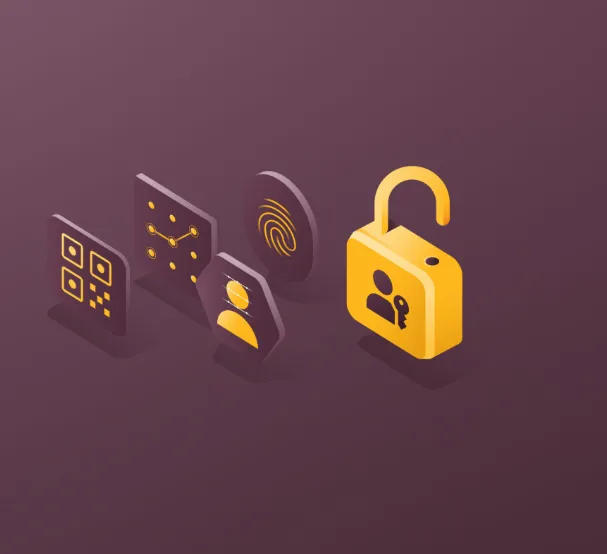15 Essential Cybersecurity Tips to Safeguard Your Digital Life

The internet today is rife with threats like malware, ransomware, and data breaches, putting everyone at risk. With a single click, you could be exposed to major financial losses. As cyber threats become more sophisticated, it’s essential to remain vigilant and implement effective security practices. Below are key cybersecurity tips that can help you protect yourself from hackers and malicious software.
General Cybersecurity Tips
1. Keep Your Software Updated
Modern devices like smartphones, laptops, and smart home devices require regular updates to stay secure. These updates often include crucial security patches that protect against new threats. Even though updates might seem inconvenient, they are vital for keeping your system secure. Always make sure your devices are set to automatically update, or check for updates manually if needed.
2. Avoid Downloading Files from Unknown Sources
Cybercriminals often use emails and fake websites to distribute malware. These malicious links and attachments can infect your device and spread to others. If you receive an unsolicited email with a suspicious link or attachment, delete it immediately or mark it as spam. If you recognize the sender but still feel uneasy about the message, verify its authenticity before opening any files.
3. Install Antivirus Software
Antivirus programs are crucial in defending against viruses, ransomware, and other malware. Don’t assume that devices like Macs are immune to threats; even they require antivirus protection. Many antivirus programs are available for free, but always download from reputable sources to avoid fake software.
4. Use Unique Passwords for Each Account
Reusing passwords across different accounts makes it easier for hackers to gain access if they breach one of your accounts. Always use strong, unique passwords for each account to reduce the risk. Consider using a password manager to securely store and manage your passwords. Additionally, enable two-factor authentication (2FA) whenever possible for extra security.
Connecting to the Internet
When connecting to the internet, especially on public networks, extra precautions are necessary.
5. Utilize a VPN
A Virtual Private Network (VPN) encrypts your internet traffic and hides your IP address, which can protect you from cyberattacks when using public Wi-Fi. While VPNs were originally designed for businesses, they are also effective for individuals looking to secure their online activity.
6. Delete Downloads from Public Computers
If you ever use a public computer, be sure to delete any files you download before leaving. Simply deleting the files will not remove them permanently; you need to clear the trash or recycle bin to ensure they are completely erased. Always log out of any accounts on public computers as well.
Cybersecurity While Traveling
7. Connect Only to Trusted Networks
When traveling, use only secure and trusted networks. Your mobile carrier’s international roaming service offers the most secure option. Avoid using public Wi-Fi for sensitive activities such as banking.
8. Avoid Online Banking on Public Networks
While traveling, refrain from accessing online banking services on public networks. If you need cash, rely on official and trusted sources like government-approved ATMs or banks. Using your credit card on public Wi-Fi increases the risk of fraud.
At Home
9. Stay Aware of IoT Device Vulnerabilities
Smart home devices like Amazon Alexa, Google Home, and security cameras connect to your home network, making them potential targets for hackers. Ensure these devices are always updated to minimize risks.
10. Update Your Router’s Firmware
Your home router is a gateway to all devices connected to it. Hackers often exploit security flaws in routers, so it’s important to regularly update its software. Manufacturers typically notify users when updates are available, but it’s also a good idea to check for updates manually.
11. Use Strong, Unique Passwords for All Devices
Using weak passwords for devices at home can expose you to cyber threats. Avoid common passwords like “password” or your birth date. Instead, opt for long, complex passwords with a mix of letters, numbers, and symbols. A password manager can help keep track of these for you.
Online Shopping
12. Ensure SSL Encryption
When shopping online, always verify that the website has SSL encryption, indicated by a padlock icon in the address bar. This ensures that your sensitive data, like credit card information, is encrypted and secure.
13. Shop Only on Trusted Websites
Even if a website has SSL encryption, it’s still important to ensure it’s reputable. Stick to well-known, trusted e-commerce platforms to minimize the risk of fraud or data theft.
Email Safety
14. Be Cautious of Suspicious Links
Emails are a common source of phishing attacks. Never click on links asking for your login credentials, especially if you didn’t request them. Legitimate companies will never ask for sensitive information via email.
15. Watch for Financial Scams
Phishing emails often attempt to trick you into transferring money or sharing personal information. These scams may use emotional tactics or fake stories to convince you. Always delete suspicious emails immediately and report them if necessary.
Final Thoughts
Cybersecurity is essential for everyone, regardless of whether you’re using a computer for personal or professional purposes. The digital world is filled with threats, but by staying informed and following these practical tips, you can significantly reduce your risk of falling victim to cyberattacks. Stay alert, keep your software updated, and protect your personal data to stay safe online.







